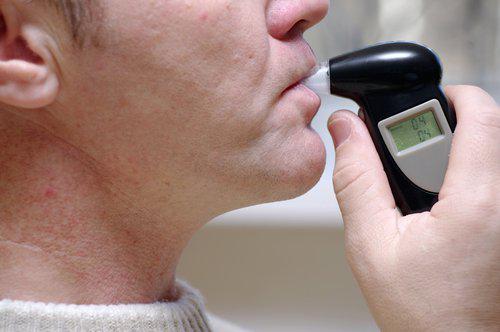Probable Cause and the Scent of Alcohol
 Drunk driving charges can have serious consequences that follow a person for the rest of his or her life. For instance, a person with three or more OWI convictions is subject to a reduced blood alcohol concentration (BAC) standard. Ordinarily, this limit is 0.08, but those with more convictions are subject to a 0.02 limit. This means that even a single drink could put a person over the legal limit.
Drunk driving charges can have serious consequences that follow a person for the rest of his or her life. For instance, a person with three or more OWI convictions is subject to a reduced blood alcohol concentration (BAC) standard. Ordinarily, this limit is 0.08, but those with more convictions are subject to a 0.02 limit. This means that even a single drink could put a person over the legal limit.
This reduced BAC limit leads to a unique issue with regard to searches and preliminary breath tests for alcohol. Police need some sort of “probable cause” in order to request a preliminary breath test. Normally, this standard is somewhat strenuous for the police, but the Wisconsin Supreme Court has ruled in the case State v. Goss that the mere scent of alcohol is enough to test a person with three or more convictions for OWI.
What Probable Cause Is
Probable cause is the standard that police have to meet in order to perform a warrantless search. The 4th Amendment to the U.S. Constitution protects people from “unreasonable” searches and seizures. This usually means that the police need to go before a judge and get a warrant for a search, but the law makes exceptions to this rule in certain cases. Traffic stops are one of the most common exceptions since the car could leave in the time that it would take for the officer to go get a warrant. Instead, courts apply the probable cause standard, which requires the police to have information that would make a reasonable person think a search would turn up evidence of a crime. If police perform a search without meeting this standard, then any evidence they find during the search can be excluded at the trial.
State v. Goss
The specific case that dealt with this issue was State v. Goss, which concerned a state trooper who pulled over a driver for issues unrelated to alcohol. After stopping the driver, the trooper looked up his license and found four previous OWI convictions, meaning that the driver was subject to the reduced 0.02 limit. The trooper then caught the scent of alcohol in the man's car, and based on the scent alone he had the man submit to a preliminary breath test, which requires probable cause. The state Supreme Court ruled that because even a single drink would have put the man over the legal limit, the mere scent of alcohol was enough to justify the breath test. However, the Court's reasoning relied heavily on the fact that the driver was subject to the 0.02 limit, so it is unlikely that the scent of alcohol would qualify for probable cause absent the prior convictions.
OWI charges can have long-lasting consequences. If you have recently been charged with an OWI, contact an experienced Milwaukee criminal defense attorney today. Our dedicated team is here to make sure that you get the fair hearing that you deserve.






